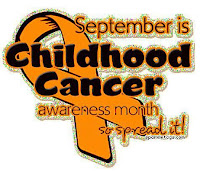Tenderness and kindness are not signs of weakness and
despair but manifestations of strength and resolution. -- K. Gibran
April Epner: I know what I did to you, to you in particular. Kinda worst nightmare kind of thing, right? I knew that. Even at the time I knew that.
Frank: What else?
April Epner: I'll do it again, I will, I'll hurt you again and again. Not like that, you'd have to leave me if I hurt you like that. If we were together you would leave me if I hurt you like that again, wouldn't you?
Frank: Yes. Yes, I would.
April Epner: Good. But I'll hurt you in other ways, little ways, I won't mean to but I will. And sometimes I will mean to.
Frank: This is quite an offer you've worked out.
April Epner: You'll hurt me too, you know. You'll hurt me and change on me, you might even leave me after you promise you won't, how about that?
Frank: I wouldn't.
April Epner: But you might.
Frank: But I wouldn't.
April Epner: But... you might.
Frank: Yeah, I guess I might.
April Epner: I know what I did to you, to you in particular. Kinda worst nightmare kind of thing, right? I knew that. Even at the time I knew that.
Frank: What else?
April Epner: I'll do it again, I will, I'll hurt you again and again. Not like that, you'd have to leave me if I hurt you like that. If we were together you would leave me if I hurt you like that again, wouldn't you?
Frank: Yes. Yes, I would.
April Epner: Good. But I'll hurt you in other ways, little ways, I won't mean to but I will. And sometimes I will mean to.
Frank: This is quite an offer you've worked out.
April Epner: You'll hurt me too, you know. You'll hurt me and change on me, you might even leave me after you promise you won't, how about that?
Frank: I wouldn't.
April Epner: But you might.
Frank: But I wouldn't.
April Epner: But... you might.
Frank: Yeah, I guess I might.
We are in the midst of the holiday season. It is a time for
gatherings with family and friends -- holiday dinners and parties, shopping -- all
of which typically requires lots social interaction. I chose the quote (above)
from the movie “Then She Found Me” because in the (somewhat awkward) scene
between Helen Hunt and Colin Firth, April's words depict what
happens naturally in the course of all close personal relationships; be it
friendships, family or romantic.
Sometimes letting go is the right decision when we find a person who is
not positive and supportive majority of the time. But,
sometimes, an understanding of natural
human tendency to be fallible softens the blow when others behavior, actions (or
mistakes) isn’t the most comfortable feeling in the moment and can cause our
autonomic nervous system (ANS) light up the fight or flight feeling. It is
those moments where not being primitive animals that automatically respond to
our biological impulses is important and let reasoning set in.
According to Dr. Daniel Amen “the people you spend time with
determine your longevity”. I attribute
my father’s stroke to the social stress he dealt with for decades, coupled with genetics. He did not have a spouse who was supportive
and loving for majority of his life, nor close friends or family to help ease
the problems him and my mother faced. I
am happy that seems to have now changed. Science has proven social isolation is as
dangerous as smoking.
Positive social interaction requires understanding and an
ability to be benevolent to one another, and show it through our actions and
words. It is thought that our “feeling side” of our brain is the primitive part
of our brain and the rational part is the apart of the newly (relative to
millions of years) part of our brain. I find using science to help me understand
what maybe lying behind my loved ones behavior helps me step away from taking
it personal and empowers me to try react better. Oddly (or maybe not) science is helping me learn how to maintain
relationships through the sticky stuff; to stick it out as I -- and my loved ones -- each evolve, grow and change, as long as the relationships have a predominately positive foundation. Having a scientific understanding (via psychology
tests and functional MRI’s) of my son’s brain helps me and his teachers
cater his education to what we know his strengths and weaknesses are. We know
that he is near genius in vocabulary, but that his processing speed is on the
low end of average. This could cause him to come off as being lazy, when it is
really his brain catching up and it needs a little more time. He has an amazing way of communicating, but
when he is learning something new we know he needs more time than his average
peers to work on mastering it. I find this understanding helps me to be patient
when it might be more of a challenge to choose to do so.
As we are moving
through the holidays festivities it seems fitting to end this with a popular
verse from the bible:






